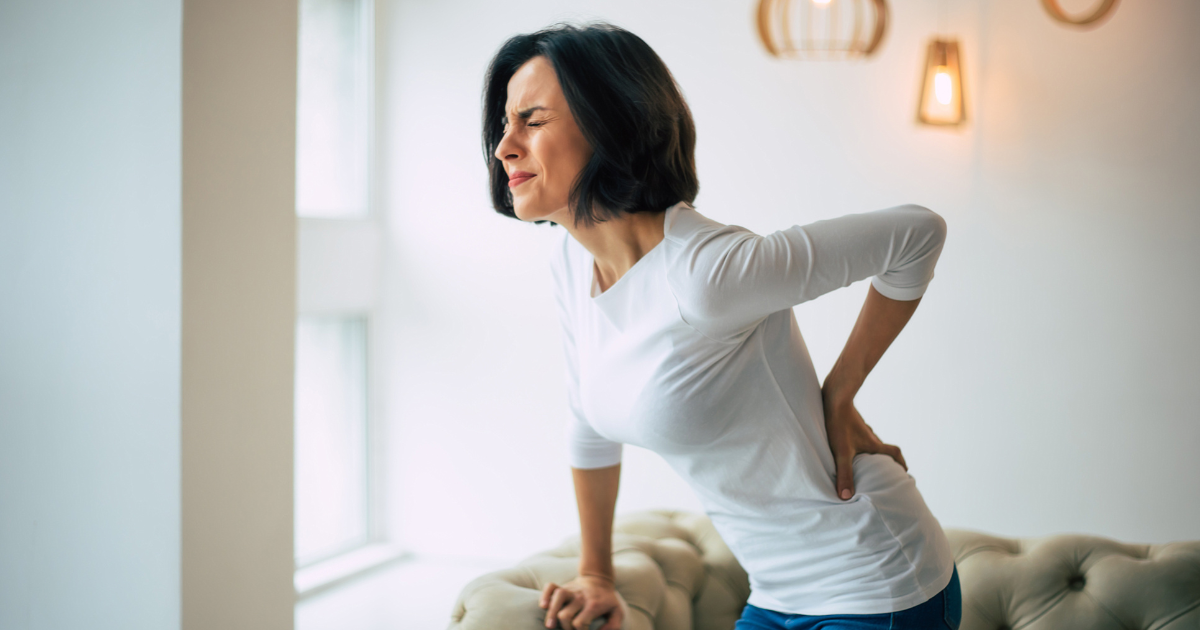Insomnia Linked to Low Back Pain

What does insomnia and low back pain have in common? Quite a bit! In fact, pain, in general, whether physical or mental, has long been associated with insomnia. According to a new study, there isn’t only a bidirectional association between sleep trouble and back pain but also a genetic component. The research published in Frontiers in Neuroscience analyzed data from over 400,000 people and found a link between this form of pain and insomnia.
Poor sleep quality can increase the occurrence of back pain, and vice versa, but researchers stress focusing on sleep first. This is because quality sleep plays a vital role in countless health factors as well as performance in your professional and personal life. Although focusing on sleep first and pain second is the recommended approach, you can also tackle both simultaneously. It’s an ugly cycle to be in—back pain causing insomnia and insomnia worsening back pain—but it’s one that can be corrected with the right tools.
What Research Shows
The researchers examined health data and self-reported data from hundreds of thousands of adults via the UK Biobank. The participants gave information on their health, had genetic testing done, and reported on sleep patterns. Factors linked to poor sleep quality including daytime sleepiness, sleep duration, and insomnia were considered in order to choose participants who had genetic variants linked to sleep problems.
Previously, variants in 10 genes have been identified as informing short sleep duration (i.e. being a “morning person” or “night owl”).
Participants who presented with these variants also had higher incidents of lower back pain. This led researchers to theorize that there’s a causal relationship between low back pain and insomnia. In other words, treating just one of these problems might help the other, and the researchers suggest starting with sleep first. There are a few reasons for this.
Treating Insomnia
The first line of treatment for insomnia is usually cognitive behavioral therapy for insomnia, or CBT-I. This often involves guidance from a sleep doctor where sleep hygiene best practices are modified. Lifestyle changes such as when and what you eat before bed, managing consumption of caffeine and alcohol, changing the sleep environment, and adopting new nightly rituals are common aspects of CBT-I. Adding Sip2Sleep® to your nightly routine is one good sleep hygiene solution. It’s a natural, drinkable sleep aid created by a sleep doctor and made from tart cherry extract and Venetron®.
Also: Can't Sleep? Discover Why Sip2Sleep® Works Better Than Melatonin
Sip2Sleep® can also help you avoid or reduce dependency on sleep aids, whether “natural” or prescription. Most natural sleep aids have antihistamines, which means you can build up a tolerance quickly. Others may cause dependency. Prescription sleep aids should only be used in severe cases where more conservative measures fail or in acute circumstances.
Pain and Insomnia
This was not the first study that linked pain with insomnia. In fact, previous research has shown the same connection with a genetic component, such as a study in PLOS One that showed an increase in insomnia symptoms could predict back pain. A Nature study suggested that those with long-term poor sleep had twice the risk of having a back-related disability.
Also: How Better Sleep Strengthens Your Immune System And What To Do When You Can't Sleep
Sleep disorders are often associated with a myriad of co-morbidities, with pain being just one of them. If you don’t get enough sleep, you are also at a higher risk of early death, cardiovascular events, type-2 diabetes, and a stroke. Of course, your daily life suffers as well from subpar personal relationships to trouble at work. If you don’t get the sleep you need, it’s both a literal and figurative pain. But help is available.
Better Sleep Starts Today
Prioritizing natural approaches for sleep disorders like insomnia should always be a priority. Seeing a sleep doctor if you struggle with getting the sleep you need is also a must. There may be comorbid sleep disorders along with insomnia, which can be tough to gauge if you don’t have a sleep partner.
Get on the fast track to getting the Zzz you need today and upgrade your sleep hygiene practices. A relaxing drink of Sip2Sleep® before bed is an excellent way to get started.







